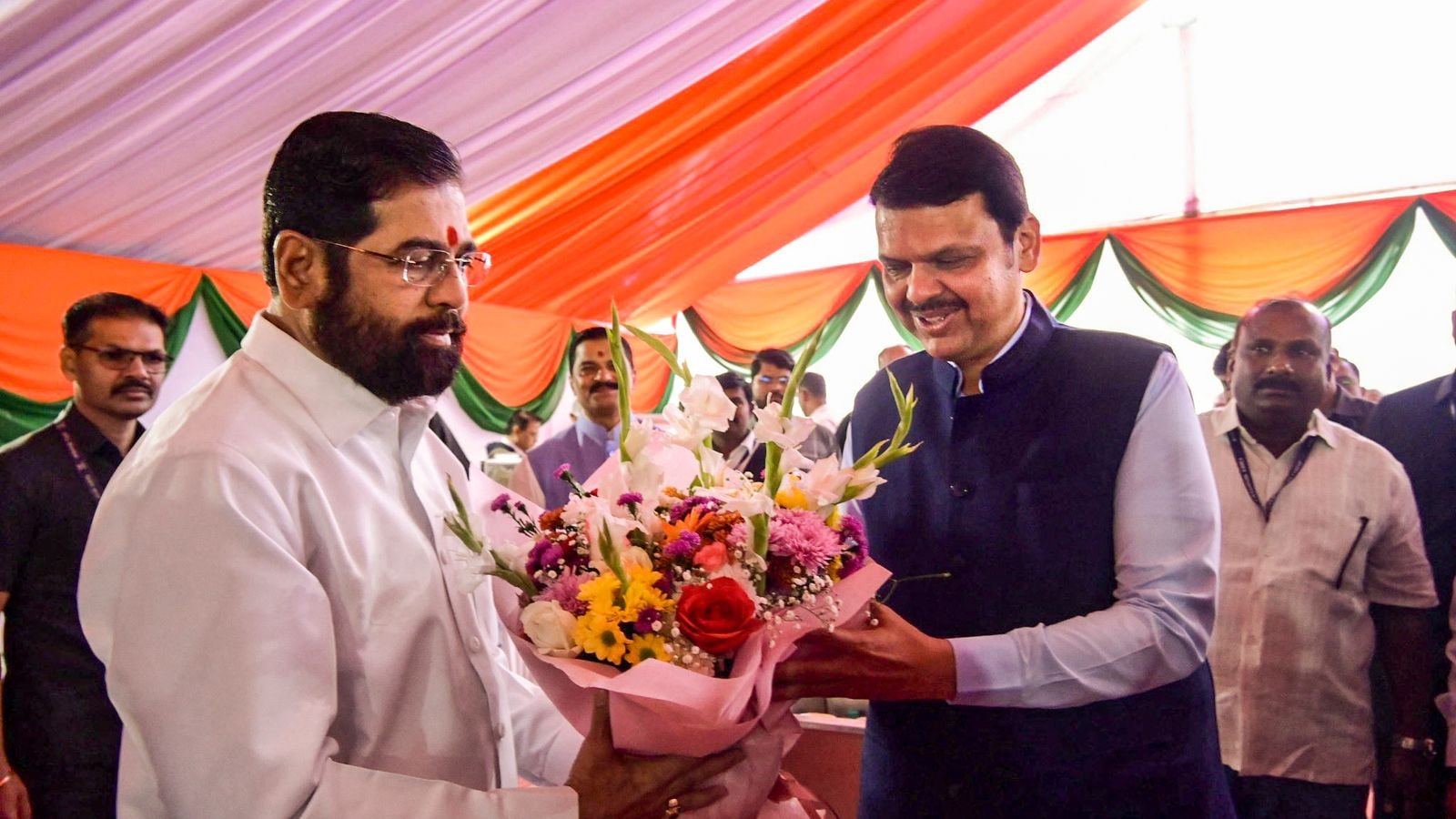 |
|
The recent portfolio distribution in the Maharashtra government has significantly strengthened the position of Deputy Chief Minister Eknath Shinde and his faction of the Shiv Sena. While accepting the Deputy CM post, Shinde successfully negotiated for a substantial share of key ministries, solidifying his influence within the ruling Mahayuti alliance comprising the BJP, NCP, and his own Shiv Sena faction. This strategic move demonstrates his political acumen and bargaining power within the coalition government.
The allocation of heavyweight portfolios to Shinde's party showcases a clear power dynamic within the ruling coalition. The acquisition of crucial departments like Urban Development, Housing, Industries, Public Health, Water, and School Education grants Shinde significant control over critical infrastructure projects and development initiatives across the state. This control extends to influential urban bodies such as the MMRDA, CIDCO, and MSRDC, allowing him substantial influence over urban planning and development in major cities like Mumbai. The strategic gain of the Urban Development portfolio in particular positions Shinde as a key player in shaping the future of Maharashtra's urban landscape.
While Shinde's ambition for the Home portfolio remained unfulfilled, the substantial gains in other key areas arguably compensate for this. The strategic distribution of remaining portfolios amongst his party members further reinforces Shinde's position. The appointment of Uday Samant to the Industries and Marathi Language ministries, Prakash Abitkar to Public Health & Family Welfare, and Dada Bhuse to School Education, among others, showcases a calculated approach to balancing regional and caste representation within the Shiv Sena's ministerial appointments. This careful consideration suggests that Shinde is keenly focused on the upcoming civic polls and seeks to secure broad-based support across the state.
Beyond the Cabinet level appointments, Shinde’s strategic maneuvering is further evidenced by the careful selection of Ministers of State. The allocation of key responsibilities to figures like Ashish Jaiswal (Finance & Planning, Agriculture, etc.) and Yogesh Kadam (Home (Urban), Revenue, etc.) reflects a calculated effort to distribute power effectively and build a strong support base. This highlights Shinde's intention to build a robust and loyal team within the government and demonstrate the influence of his faction of the Shiv Sena. The fact that Shinde was able to retain five ministers from the previous government and introduce six new faces while strategically balancing regional and caste representation reflects a shrewd and calculated political strategy.
Shinde’s approach to ministerial appointments extends beyond immediate political gains. The announcement of a two-and-a-half-year rotation policy for ministers is a notable move aimed at managing expectations and appeasing those MLAs who were not included in this round of appointments. This proactive strategy signals Shinde's commitment to fostering party unity and minimizing internal dissent. This is particularly crucial given the complex power dynamics within the coalition and the need for a cohesive approach to address the state's diverse needs and challenges.
The regional distribution of ministerial appointments further underscores Shinde's pragmatic approach to governance. By strategically allocating ministerial positions across the five regions of the state, Shinde aims to create a sense of inclusivity and representation. While the absence of a Mumbai representative may raise eyebrows, the focus on other regions might reflect an attempt to broaden the party's support base beyond the major metropolitan area. The emphasis on regional balance demonstrates a clear political strategy geared towards long-term stability and broad-based support within his faction.
In conclusion, Eknath Shinde's success in securing key portfolios and establishing his faction as the second most powerful player in the Maharashtra government highlights his significant political maneuvering. His actions demonstrate his adeptness at negotiation, strategic planning, and managing internal party dynamics. The meticulous attention to regional balance, caste representation, and future planning all suggest a broader political strategy focused on consolidating power and ensuring the long-term stability of his faction within the Mahayuti alliance. The effectiveness of his approach will undoubtedly be tested in the coming months and years, but his current position speaks to his significant political success.
